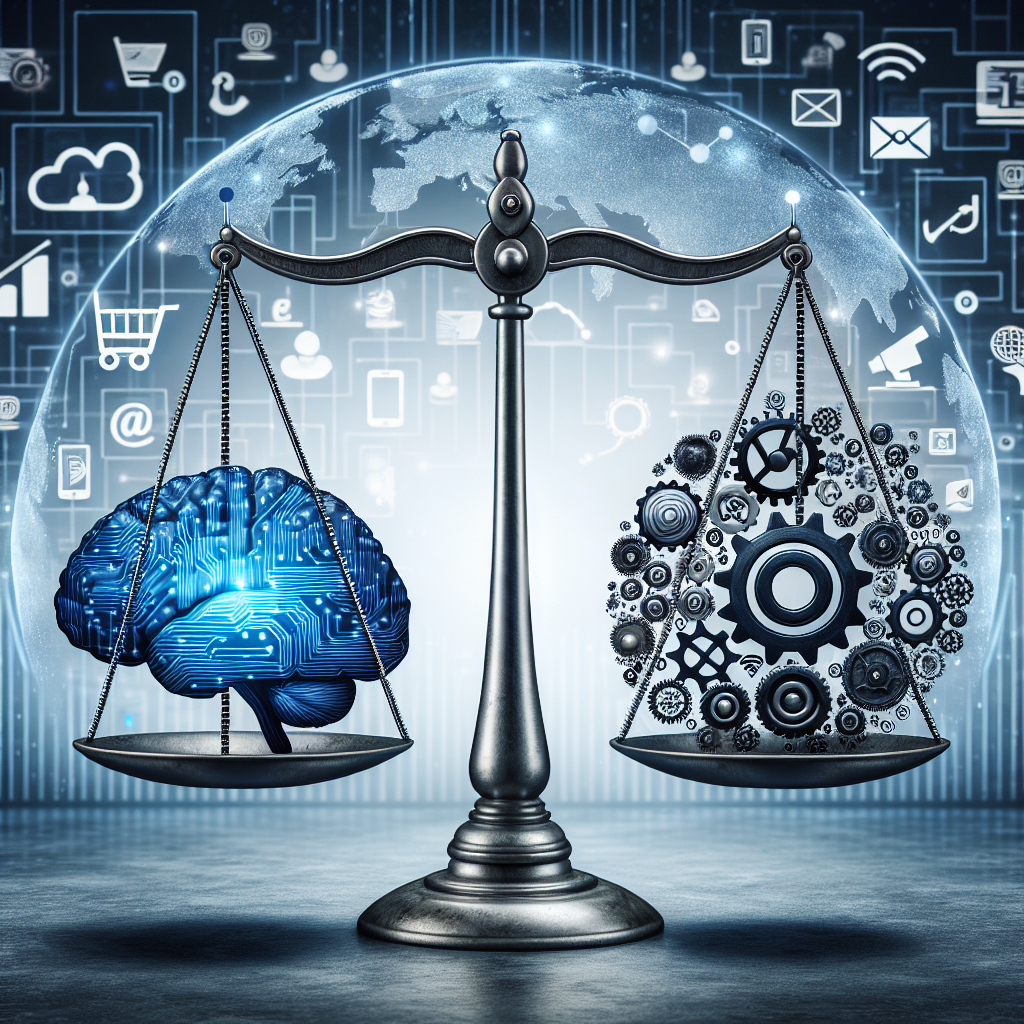Artificial Intelligence (AI) and Machine Learning are revolutionizing the way businesses approach marketing automation. These technologies have the power to analyze vast amounts of data, predict customer behavior, and personalize marketing campaigns like never before. In this article, we will explore the impact of AI and Machine Learning in marketing automation and how businesses can leverage these tools to drive growth and increase ROI.
What is AI and Machine Learning in Marketing Automation?
AI refers to the simulation of human intelligence in machines that are programmed to think and learn like humans. Machine Learning is a subset of AI that enables machines to learn from data without being explicitly programmed. In the context of marketing automation, AI and Machine Learning algorithms can analyze data, identify patterns, and make predictions to optimize marketing campaigns and improve customer engagement.
Benefits of AI and Machine Learning in Marketing Automation
1. Personalization: AI and Machine Learning algorithms can analyze customer data and behavior to create personalized marketing campaigns. By understanding individual preferences and interests, businesses can deliver targeted messages that resonate with customers and drive engagement.
2. Predictive Analytics: AI can analyze historical data and predict future trends, enabling businesses to anticipate customer needs and behaviors. By leveraging predictive analytics, businesses can optimize their marketing strategies and make data-driven decisions.
3. Automation: AI-powered marketing automation tools can streamline repetitive tasks, such as email marketing, lead scoring, and customer segmentation. By automating these processes, businesses can save time and resources while delivering more targeted and personalized campaigns.
4. Improved Customer Experience: AI can analyze customer interactions and feedback to provide personalized recommendations and responses. By understanding customer preferences and behaviors, businesses can enhance the overall customer experience and build stronger relationships with their audience.
5. Real-time Insights: AI and Machine Learning algorithms can analyze data in real-time, providing businesses with actionable insights to optimize their marketing campaigns on the fly. By monitoring key metrics and performance indicators, businesses can adapt their strategies to maximize results.
Examples of AI and Machine Learning in Marketing Automation
1. Predictive Lead Scoring: AI can analyze customer data to predict which leads are most likely to convert into customers. By scoring leads based on their behavior and engagement, businesses can prioritize their efforts and focus on high-quality leads that are more likely to convert.
2. Personalized Recommendations: AI-powered recommendation engines can analyze customer data to provide personalized product recommendations based on individual preferences and purchase history. By delivering tailored recommendations, businesses can increase sales and customer satisfaction.
3. Dynamic Content Optimization: AI can analyze customer interactions with content and optimize messaging in real-time to improve engagement. By testing different variations of content and measuring performance, businesses can deliver more relevant and engaging content to their audience.
4. Chatbots: AI-powered chatbots can interact with customers in real-time, providing personalized responses and assistance. By leveraging natural language processing and Machine Learning algorithms, businesses can deliver a seamless customer support experience and improve engagement.
5. Marketing Attribution: AI can analyze multiple touchpoints in the customer journey to attribute conversions to specific marketing channels. By understanding the impact of each touchpoint on the customer’s decision-making process, businesses can optimize their marketing mix and allocate resources more effectively.
FAQs
Q: How can businesses implement AI and Machine Learning in their marketing automation strategies?
A: Businesses can start by identifying their marketing goals and objectives, as well as the key metrics they want to track. They can then leverage AI-powered marketing automation tools and platforms to analyze data, personalize campaigns, and optimize performance.
Q: What are some common challenges associated with implementing AI and Machine Learning in marketing automation?
A: Some common challenges include data quality and integration, privacy concerns, and the need for specialized skills and expertise. Businesses should invest in data governance and security measures, as well as training their teams to effectively leverage AI and Machine Learning tools.
Q: How can businesses measure the ROI of AI and Machine Learning in marketing automation?
A: Businesses can track key performance indicators, such as conversion rates, customer engagement, and revenue generated from AI-powered campaigns. By analyzing these metrics and comparing them to traditional marketing efforts, businesses can measure the impact of AI and Machine Learning on their ROI.
In conclusion, AI and Machine Learning are transforming the way businesses approach marketing automation. By leveraging these technologies, businesses can personalize campaigns, predict customer behavior, and optimize their marketing strategies to drive growth and increase ROI. As AI continues to evolve, businesses that embrace these tools will have a competitive advantage in the ever-changing landscape of digital marketing.

